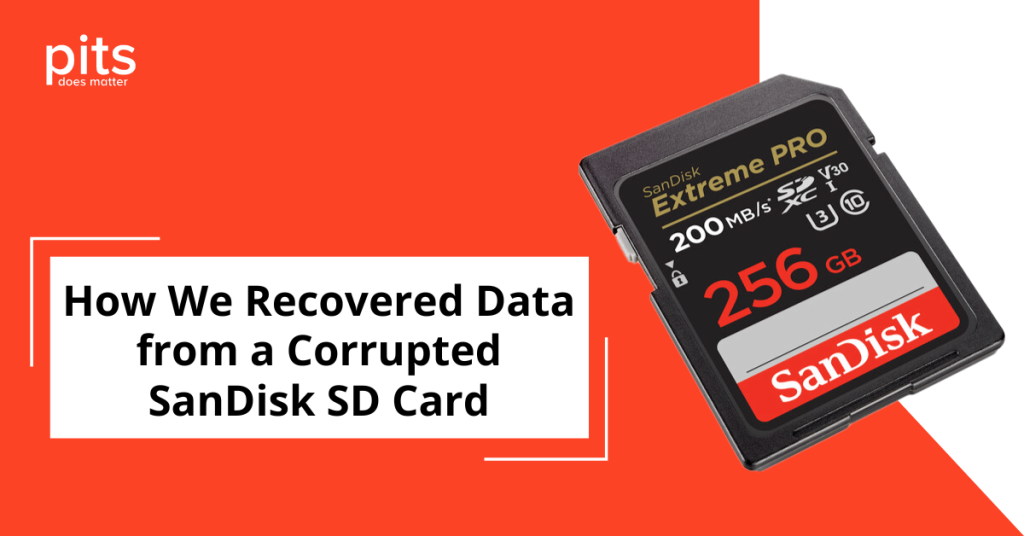Hard drives represent a crucial element within any computer system, serving as repositories for vast quantities of data. The occurrence of hard drive failure can lead to the loss of data, resulting in severe consequences for individuals and enterprises alike.
This article endeavours to explore the causative factors behind hard drive failures, the determinants influencing hard drive longevity, the typical rationales behind such failures, as well as the appropriate course of action when confronted with such an event.
The Lifespan of a Hard Drive
It is imperative to acknowledge that a hard drive is not engineered to endure indefinitely; instead, it possesses a finite lifespan. Understanding the lifespan of one’s hard drive is of paramount importance. On average, hard drives can persist for a period ranging from three to five years. However, this is merely an estimation, as the longevity of certain hard drives might surpass or fall short of this timeframe.
Numerous factors can impact the longevity of a hard drive, with usage constituting a primary determinant. Hard drives subjected to frequent use, necessitating numerous read/write operations, will inevitably experience accelerated wear and tear compared to those subjected to less frequent utilisation.
The operational temperature of a hard drive plays a pivotal role in determining its lifespan. Hard disk drives that function at elevated temperatures are more vulnerable to failures compared to those operating under cooler conditions.

Additionally, several other factors significantly impact the longevity of hard drives. Power surges, physical damage, and manufacturing defects can all have detrimental effects. Power surges, for instance, can inflict harm on the electronic components of a hard drive, precipitating its failure.
Similarly, physical damage, such as dropping a hard drive, can result in internal component impairment, leading to failure. Moreover, manufacturing defects can also cause premature hard drive failure.
Common Causes of Hard Drive Failure
Wear and Tear: Over time, the internal components of a hard drive gradually wear out, ultimately contributing to its failure.
Overheating: Hard drives operating under high-temperature conditions are susceptible to severe malfunctions.
Power Surges: Sudden spikes in power can harm the electronic components of a hard drive, leading to failure.
Physical Damage: Impacting or subjecting the hard drive to physical harm can damage its internal components and result in failure.
There are multiple types of malfunctions that stem from various causes leading to hard disk drive failures. These malfunctions are classified based on the diverse reasons underlying hard disk failures.
Hard Drive Failure and its Types
Logical Failure
A logical failure occurs when the data on the hard drive becomes corrupted or is inadvertently deleted. This can result from a virus or malware attack, software corruption, or user error. Addressing logical failures can prove to be a challenging task.
Mechanical Failure
A mechanical failure occurs when there is a physical issue with the hard drive’s internal components. Such failures may be caused by factors such as wear and tear, overheating, power surges, physical damage, or manufacturing defects.

Guidelines for Dealing with Hard Drive Failure
When confronted with a hard drive failure, prompt action to mitigate data loss becomes imperative. However, certain measures should be avoided in such circumstances.
- Refrain from Utilising Software: If your hard drive has failed due to a mechanical issue, abstain from using software in an attempt to rectify it. Software solutions are inadequate for addressing physical problems with a hard drive and, in fact, may exacerbate the situation.
- Avoid Self-Repair Attempts: Given the intricacy of hard drives, attempting to repair them independently can lead to additional harm and data loss. If your hard drive has failed due to mechanical reasons, refrain from making repair attempts on your own.
- Do Not Open the Hard Drive: In cases where you suspect a mechanical problem with your hard drive, avoid opening it. Opening the hard drive can expose its internal components to dust and contaminants, potentially causing further damage and data loss.
So, what course of action should you take when faced with hard drive failure? The first step is to shut down your computer and disconnect the affected hard drive.
Continuing to use the computer with a failed hard drive risks exacerbating the damage and incurring data loss.
Subsequently, it is advisable to engage a professional data recovery service. These services specialise in the restoration of failed hard drives and possess the requisite tools and expertise to diagnose hard drive issues. When selecting a data recovery service, opt for a reputable provider with experience handling your specific hard drive type and the nature of the failure you are encountering.
Hard drive failure constitutes a prevalent issue that can lead to data loss. Gaining insight into the causes of hard drive failure and the factors influencing its lifespan can enable you to undertake measures to minimise the risk of such failures.
Should you encounter a hard drive failure, prompt action is imperative, and contacting a professional data recovery service becomes essential to minimise data loss. If you detect an ominous “click of death” emanating from your hard drive or observe data corruption, we urge you to promptly get in touch with our team.
Irrespective of the Reason for Hard Drive Failure
At PITS Global Data Recovery Services, we offer professional data recovery solutions for hard drives that have incurred logical or physical damage. With our extensive experience, our team of experts possesses the knowledge and expertise to successfully recover data from all types of hard drives.
In cases of logical damage, we possess the capability to retrieve data from hard disk drives that have been formatted, encountered file system corruption, or suffered accidental file deletions. Employing specialised techniques, our team excels in the recovery of lost data.
Addressing physical damage to a hard drive demands a more intricate approach, necessitating the opening of the device within a controlled, clean room environment for the purpose of repairing or replacing damaged components. Our state-of-the-art clean room facility enables us to manage even the most severe instances of physical damage. Our highly skilled engineers possess the proficiency to replace damaged parts, such as read/write heads, spindle motors, or circuit boards, with new components, thereby restoring the hard drive’s functionality and facilitating data retrieval.
Furthermore, we provide data recovery services for hard drives that have been affected by natural disasters, such as floods or fires, as well as those that have been subjected to data breaches or cyberattacks. Our recovery team is equipped with cutting-edge tools and advanced techniques to restore data from any situation, including water damage, motor failure, controller board malfunction, head crash, or platter damage.
24/7 Emergency Service Availability
So if you're facing a data loss situation, don't hesitate to contact us. Our 24/7 data recovery services are available 365 days a year. Let us help you recover your precious data today.
Certified Data Recovery Laboratories
So if you're facing a data loss situation, look no further. With our certified data recovery labs and 99% success rate, we are confident that we can recover your precious data and get you back on track.
Data Recovery Services Worldwide
PITS is a leading global recovery service provider specializing in retrieving data from various storage devices. With a widespread network of locations, we offer reliable solutions to clients worldwide.
ISO Certified Class 10 Cleanroom
Our engineers work in a controlled environment to ensure the safety of your device. We recover data in ISO Certified Class 10 Cleanroom and achieve high results.
Risk-free Evaluation and Assessment
We start the process with a risk-free evaluation. Our technicians estimate the reasons for data loss and the level of damage. We select the most suitable strategy.
100% Customer Satisfaction Rate
With years in the data recovery industry, our company supports the highest customer satisfaction rate. We do everything to provide a positive experience for our clients.
At PITS Global Data Recovery Services, we deeply appreciate the significance of your data and the critical need for a swift and efficient recovery process. To cater to our client’s urgent requirements, we offer 24/7 emergency services, ensuring a prompt commencement of the data recovery procedure.
Our specialisation lies in retrieving data from hard drives afflicted by either logical or physical damage. Equipped with the latest tools, our team of technicians possesses the expertise to tackle diverse data recovery scenarios.
If you find yourself grappling with one of the primary causes of hard drive failure, do not hesitate to contact our team. With our wealth of experience, we are adept at handling any data loss situation with utmost proficiency.
Frequently Asked Questions
What is hard drive failure?
Hard drive failure refers to the sudden or gradual breakdown of a computer’s hard disk, leading to data loss and potential system malfunction. It can be caused by various factors and may result in the inability to access data or use the computer effectively.
What are the common causes of hard drive failure?
Hard drive failure can be attributed to several factors, including:
Physical Damage: Dropping, bumping, or mishandling a computer can physically damage the hard drive, causing failure.
Mechanical Failure: Over time, the mechanical components of a hard drive, such as the read/write heads or spindle motor, can wear out and lead to failure.
Manufacturing Defects: Sometimes, hard drives may have inherent manufacturing defects that cause early failure.
Electrical Issues: Power surges, outages, or electrical problems can damage the hard drive’s circuitry and lead to failure.
Heat and Overheating: Excessive heat can cause the hard drive’s components to expand and contract, leading to potential failures.
Age: Like any mechanical component, hard drives have a finite lifespan, and with age, they become more susceptible to failure.
Software Errors: File system corruption, bad sectors, or malware attacks can cause logical errors on the hard drive, leading to failure.
How can I identify signs of an impending hard drive failure?
Early detection of hard drive issues can help you take preventive measures and backup your data. Watch out for these warning signs:
Unusual Noises: Clicking, grinding, or whirring noises coming from the hard drive can indicate mechanical problems.
Slow Performance: Frequent freezes, long boot times, and slow file access can be signs of impending failure.
Frequent Errors: If you encounter recurring errors or see the infamous “blue screen of death,” it might indicate hard drive issues.
Missing or Corrupted Files: Files disappearing or becoming corrupted without explanation could point to hard drive problems.
S.M.A.R.T. Warnings: Check the Self-Monitoring, Analysis, and Reporting Technology (S.M.A.R.T.) data using diagnostic tools; it may provide early signs of impending failure.
Can I recover data from a failed hard drive?
In some cases, data recovery is possible even from a failed hard drive. Professional data recovery services use specialised techniques and equipment to attempt data retrieval. However, it’s essential to avoid attempting DIY data recovery as it may worsen the situation and decrease the chances of successful recovery.
Should I repair or replace a failing hard drive?
In most cases, it’s better to replace a failing hard drive rather than attempt repairs, as hard drives are delicate and intricate devices. Repair attempts may lead to further damage and reduce the chances of data recovery. Replace the failing drive with a new one and restore your data from backups.
We’re Here to Help
Our experienced team is committed to helping you recover your critical data. No matter the situation, we work diligently to ensure the best possible outcome. Take action now and let us restore what’s important to you.
Start Recovery Process
"*" indicates required fields


